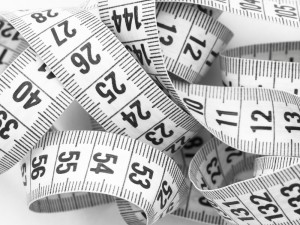 “Money is green. Distance is measured in miles. Twenty degrees is cold.”
“Money is green. Distance is measured in miles. Twenty degrees is cold.”
Depending upon where you are in the world this could be true, or it could be completely wrong. In most nations, the size and color or notes differs between denominations. Much of the world measures distances in kilometers. If you’re in the US, 20 degrees is a cold day, in Europe you could break a sweat (20 C = 68 F).
Societies are governed by standards; you grow up learning these values and measures. Rarely, if ever, do you question them. It is much easier to accept the standards you are accustomed to than to question them. The familiar seems correct and the unfamiliar wrong. These standards dictate societal norms, and by extension cross-cultural interaction. Take the movie Pulp Fiction for an example of the difference something as trivial as measures can have:
Vincent: … But you know what the funniest thing about Europe is?
Jules: What?
Vincent: It’s the little differences. I mean, they got the same shit over there that we got here, but it’s just…it’s just, there it’s a little different.
Jules: Example?
Vincent: All right. Well, you can walk into a movie theater in Amsterdam and buy a beer. And I don’t mean just like in no paper cup; I’m talking about a glass of beer. And in Paris, you can buy a beer at McDonald’s. And you know what they call a Quarter Pounder with Cheese in Paris?
Jules: They don’t call it a Quarter Pounder with Cheese?
Vincent: Nah, man, they got the metric system. They wouldn’t know what the fuck a Quarter Pounder is.
Jules: What do they call it?
Vincent: They call it a ‘Royale with Cheese.’
Jules: Royale with Cheese.
Vincent: That’s right.
It isn’t a huge difference, but its one of the small things which adds up to create cultural barriers. Things that are different or unfamiliar to us require more mental capacity to process.
Being on a different standard makes things tricky. Something as simple as a time zone can cause great confusion when trying to plan a conference call. Over the summer I was coordinating a conference call with someone in Wisconsin; when we agreed on a time neither of us specified time zones, and we both assumed the call to be in our local time. I ended up calling an hour earlier than expected and we ended up having to reschedule the call. Maybe Chairman Mao had it right when he made all of China adhere to Beijing’s time zone, to promote social harmony.
“A reliable way of making people believe in falsehoods is frequent repetition, because familiarity is not easily distinguished from truth” Daniel Kahneman, psychologist and Nobel Prize recipient. In his book, Thinking Fast and Slow, Kahneman explores our biases and how they shape the way we interact with society. He speaks a lot about exposure to ideas, and how familiarity breeds a feeling of correctness. The unfamiliar seems wrong, because it takes a great deal more mental effort to process it and understand it. Based upon his research, I can only assume that the unfamiliarity of the American system of weights and measures has adverse effects on our trade with other nations.
America has long debated switching our standards of measurement to metric. We are the only developed nation that has not adopted the metric system. Just two other countries have not adopted the International System of Units – Burma and Liberia.
Not being on the metric system is a disadvantage for American businesses, and it costs millions of dollars a year. This has been recognized for decades, but we have not acted on it. In 1915 it was estimated that the yearly cost of not adopting the metric system to the US Economy was $315 million, adjusted for inflation that’s nearly $7 billion. In 1999 NASA lost the Mars Orbiter, which cost $125 million, due to errors between the systems of measurements.
The standards by which you choose to measure things – be it employee performance or temperature – can have long and unforeseen ramifications. When you’re designing your product make sure to spend a lot of time thinking about the little details, they could have unforeseen impacts on potential future customers. Don’t set yourself up for failure by choosing the wrong standards.
Sean O’Connor is a Fulbrighter, and will be teaching English and working with young entrepreneurs in Sri Lanka. He is a recent graduate of Fordham’s Gabelli School of Business, where he majored in Finance.
Image Credit: Shutterstock.com
